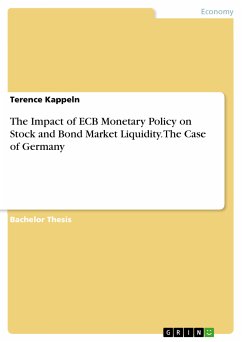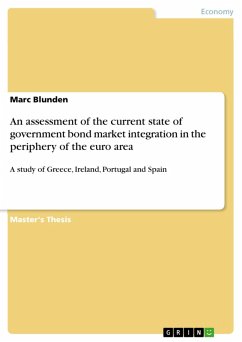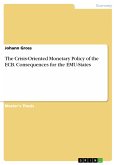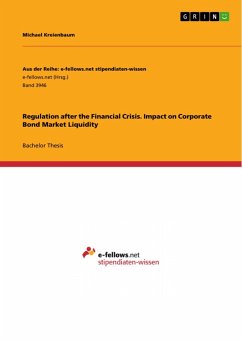Bachelor Thesis from the year 2015 in the subject Economics - Finance, grade: 1,0, Vienna University of Economics and Business (Finance and Accounting), language: English, abstract: During the financial crisis and the following Eurozone crisis, liquidity in financial markets basically froze and became a problem for the real economy. Therefore, market liquidity became one of the major concerns of the ECB, which applied non-standard measures, e.g. irregular asset purchasing programmes. This paper sheds light on the impact of monetary policy on liquidity levels of the DAX 30 equity index and German 10-year government bonds. For the following analysis, the monetary policy impacts are estimated using the base money growth rate and EONIA rate, whereas the relative bid-ask spread is employed for measuring liquidity levels. The research method includes literature-based research about common market liquidity theories, a short timeline of important ECB monetary policy decisions, descriptive statistics on liquidity levels and monetary policy variables and a VAR analysis, including variables spreads, returns, volatilities, industrial production and inflation. The results indicate that a decrease (increase) in stock market liquidity or an increase (decrease) in bondmarket volatility lead to a decrease (increase) of EONIA. Furthermore, decreases (increases) in stock return or industrial production result in a decrease (increase) of EONIA. However, base money growth is positively correlated only to changes in bond market volatility. Overall, the results suggest that the monetary policy decisions by the ECB are influenced by changing market conditions without the ability to forecast liquidity levels.









